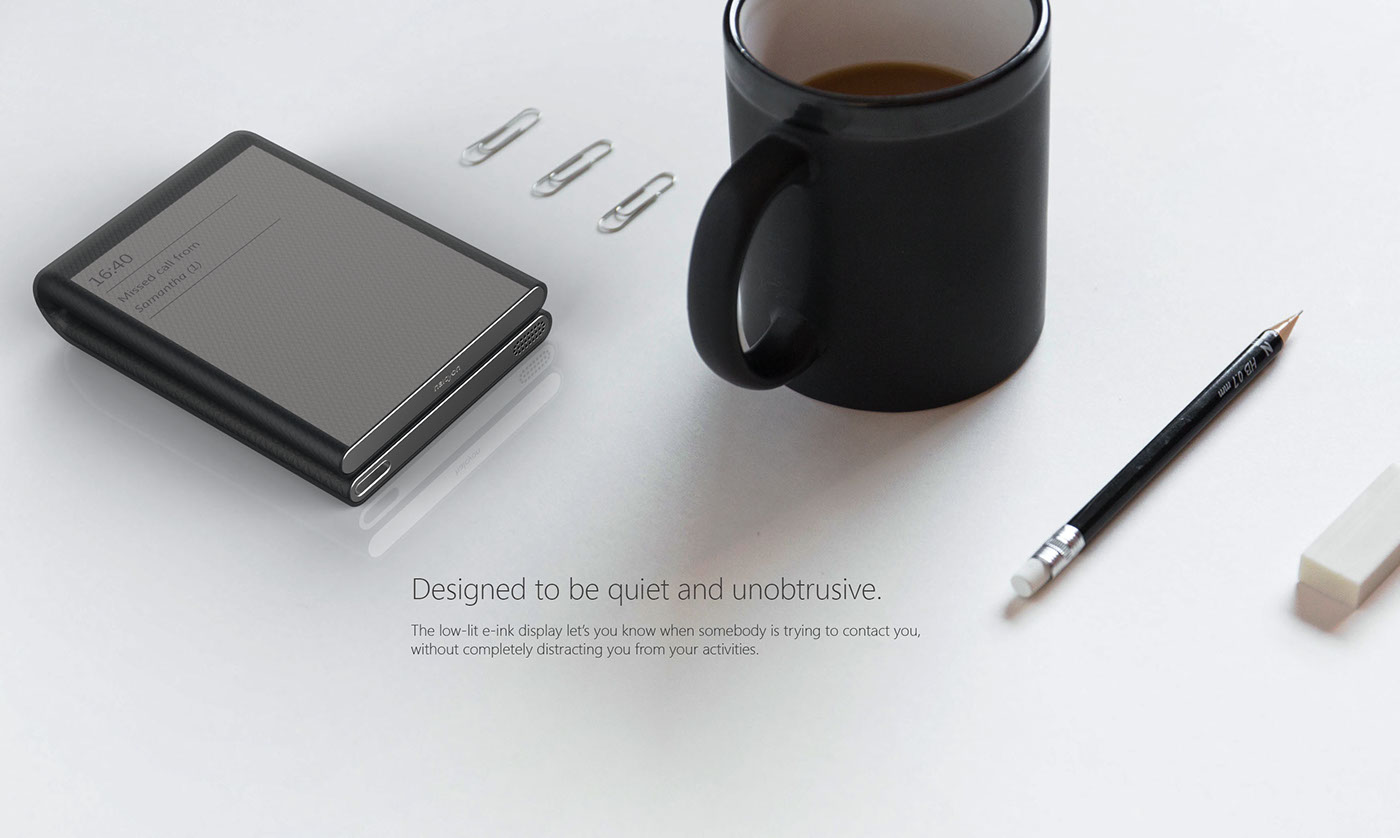Re-Overthinking Design

Another new concept phone slated for the heap of disposable ideas, image via abduzeedo.com
There's just one problem with this concept of a Digital Detox Phone - who needs a phone? I don't. The biggest problem I have with Canadian service providers is they are giving away talk time and long distance minutes as if it means something to me, but it doesn't. I need data. Data drives everything I do on a mobile device. The cost of talk and long distance minutes has reached the point where having a landline is meaningless (it's been that way for years). I get no value from extra talk time. My primary use for my mobile device is everything but talking. I regularly call my mom. That's it. The only other calls I get are from telemarketers, who I then block.
So why even come up with a new concept for a flip phone as a way to "digitally detox"? I don't have a better or more personal or more magical connection with people by voice than by text. A redux of a pager would make more sense to me than redesigning a flip phone, mostly because you can still buy any number of small (smaller than this design), affordable flip phones. I realize that 3D rendering apps plus the Internet have become fertile ground for any number of concepts, which is great but the fact that sometimes these ideas (which again, are all fun and great and exploratory etc) get enough traction to be posted, and reposted and shared until they show up in my newsfeed shows a profound lack of critical thinking. Let me expand on this.
Recently a nephew of mine had a birthday. It occurred to me that the standard digital gift card was useless to him because he doesn't use e-mail (as an aside, he oddly doesn't use Facebook, Twitter, Instagram, Slack, Trello etc either). But the only way to digitally deliver a gift card was by e-mail. No Snap, Whatsapp, Instagram, Twitter, Facebook, SMS… no anything. Suddenly, the e-mail option seemed incredibly antiquated.
Eventually, I purchased the "print at home" option, opened the PDF and texted him the voucher code. I suppose I could have printed it and mailed it to him but again… twenty-first century much? In fact, it would've been easier to transfer the money directly via my mobile banking app but that just seemed too much like stuffing his shirt with a crisp bill (I guess I still have some gifting cliché hangups).
Back to my original point. What struck me as odd about this phone concept as a "digital detox" was that firstly, it was still "digital" thus not much of a detox and that it showed no real innovation reminded me of this gift card incident. Amazon is seen as a behemoth of innovation in many areas, but they haven't really innovated at all in this retail space they've created (if not created then own). They haven't really done anything with Amazon.com since they patented 1-click purchasing (how this patent is possible is still a mystery to me) and stopped developing their recommendation algorithm. This is actually a real problem. We haven't been creating any significant innovations in our modern world really since the Internet connected stand alone computers. Making a mobile version of the Internet is a pretty modest nudge of the technology. The immediacy of social media and that mobile connectedness is again, really a mere nudge of an existing technology. Watching HBO's Silicon Valley is a hilariously cruel insight into this phenomenon. On the show creating an app that is the "Shazam" of something generates a lot of investment, but when the app accidentally has a way of identifying inappropriate content, it generates even more wealth while another much greater application of technology in the storyline languishes because it would take too long to realize (well, I don't know yet, the season isn't over).
I see this at my own work all the time. There is no reason to innovate ideas that would supplant your own technology even if it has greater potential because, well, shareholders. This is captured in the book, The Innovator's Dilemma, except what that book and concept didn't contemplate was what if an entire society is stuck in innovator's dilemma rather than just a single company? Or maybe it did. I've only ever read the article length version and not the book.
I'll give you another example. A friend of mine resisted having a mobile phone for years and instead used only a high end iPod (ostensibly a highfalutin music player) on wi-fi networks as his texting, mobile Web browsing, e-mailing, media playing, photo taking device. The only thing it lacked was a phone, yet when connected to the Internet, he could still use video or audio calls. This is exactly how many teenagers use their iPods or even smart phones. Knowing the power of this is presumably why Apple and others added mobile connectedness to their tablets though I'm not sure anyone has gotten rid of their phones to only use their tablets. In fact, the trend is the other way around, people are simply using their large screen phones for everything rather than keep buying tablets. Given this behaviour why has innovation in that wireless, mobile network been so slow? Well, I mean, we know why… shareholders. A lack of genuine critical thinking has meant no true innovation in mobile phones in the last decade which is really shocking when you think of our perception of the rate of change. Maybe it's true that the more everything changes, the more things stay the same.
Labels: design, technology


0 Comments:
Post a Comment
<< Home